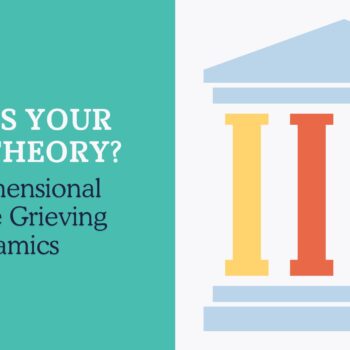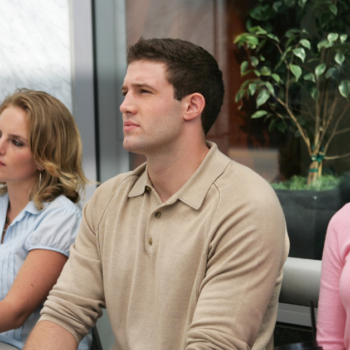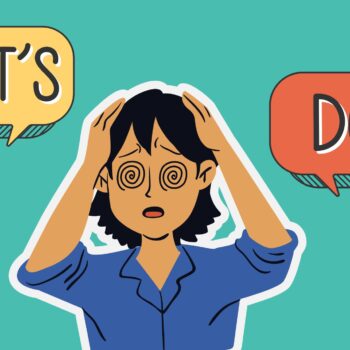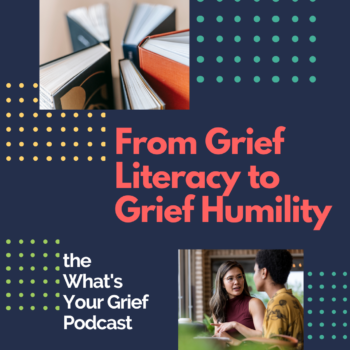Reflections on 'Mother'
/ General : Eleanor Haley
Mother's Day has passed and I suppose many of you were happy to see it go. For those without a mother and mothers whose children have died, Mother's Day can be filled with feelings of sadness and isolation. Although I do hope the day was nice for some of you because as Lisa-Jo Baker, one of the lovely authors I'm about to discuss, said "...you can be sad and you can be well at the same time."
We talked a lot about Mother's Day leading up to the day, in fact some of you may be thinking, "Yeah yeah we get it you miss your mom", but sorry we're going to take one last opportunity to muse on 'Mom'. It's not our fault, there were just so many interesting and thoughtful perspectives on the topic this year that we would hate not to highlight some of our favorites. Personally I wasn't in the right headspace leading up to Mother's Day to digest these articles (etc) and I feel grateful for the few reflective hours I've spent this morning taking them all in. As a sidebar, I've started using the word 'headspace' a lot and I'm not sure why or if it even makes sense.
Our regular readers will know we wrote our own post about Mother's Day, Mother's Day Grief: Life Without a Mother's Love, which was a personal reflection on motherly love and what it's like to yearn for it while also being the source of it.
Letters to Mom
Litsa and I are quick to recommend journaling and letter writing to individuals grieving the loss of a loved one, but when we mention this activity in workshops or elsewhere I always get the sense that no one's buying it. I always think to myself, if they could see what we mean or if they would just try it I think they would understand. So when Litsa forwarded me Lisa-Jo Bakers recent post, A Letter to My Mother, I thought "Yes! This is exactly it." Baker's letter to her deceased mother is a moving example of continuing bonds with your loved one by writing to them. Obviously she can't really send the letter, but there is power in continuing to talk to her mother just the same.
Her letter is also a beautiful illustration of the motherly-love life cycle. Her love for her own children is clearly illuminated by the love of her own mother who died when Baker was a young woman. It seems she understands her mother with greater clarity now that she is a mother herself and reflects that her relationship for her daughter is "...teaching me how you loved me. That you loved me much deeper and longer than I could possibly remember".
Letters from Mom
Dear Kids, written by John Dickerson, tells parents to write letters to their children now for them to receive when they're older. Why? For a number of reasons but chief among them is the assertion that child-parent conversations are "out of phase". In other words, children won't always know how to connect with the underpinnings of their words, thoughts, and actions because they are looking at life through a different lens. It isn't until a child is a bit older and their life phase aligns with the phase the advice was meant for, that you one can start to understand. I'm doing a horrible job explaining this, but darn it I'm going to keep trying.
For example, it is difficult to conceptualize the depth of your parents love for you until you are a parent yourself. The vulnerability, fear, passion, and occasional desperation of being a parent are things you can't understand until you've experienced them. The same goes for advice pertaining to things like marriage, career, kindness, patience and so on; it's not until you have experience with these things that you can reflect on the words of your parents and put them into context. Often it's not until life has filled in a few blanks that we can look upon their thoughts as sage as opposed to trite.
I will always be your mother
"I will always love you. And I will always be your mother" are the words Dr. Claire McCarthy says every time she visit's her son's grave. She discusses what these words have come to mean to her in her Huffington Post article Being the Mother of a Child Who Died--On Mother's Day.
One of our readers pointed out that we haven't done a good enough job supporting mothers grieving the death of a child on Mother's Day and I think she was right. Our site talks a lot about grieving the death of a mother because this is the very specific pain I know best, but her comment and McCarthy's post helped me realize what a disservice this is. I promise you, we'll be on it next year.
McCarthy paints a heartbreaking picture of what it's like to face the assault of Mother's Day hoopla when your child is gone forever. I can only imagine how lonely and alienating these holiday's might feel for grieving mothers (and fathers). The fact that this is the only Mother's Day post of it's kind tells me this is a pain grieving mothers are taking on all on their own so I am grateful for McCarthy's brave illustration of what this day is like for her.
Love and Stuff
I could possibly have written an entire post on the article/Op-Doc Love and Stuff by Judith Helfand. I rather regret I didn't. In case the entire beginning of this post didn't tip you off, I'm terrible at summarizing other peoples work and it is virtually impossible for me to convey to you why Love and Stuff is so wonderful. Well actually, I guess I know why it's wonderful - because of Helfand's unique, humorous, and real perspective.
Anyone who's ever sorted through a loved one's belongings after their death knows that sentimentality's child is absurdity. Not everyone, but many of us keep things that make no earthly sense. Helfand beautifully illustrates this in her remarks on a toothbrush, nail clippers, and lip stick as all objects for the "...toss pile filed under icky, spooky, gross and used [but] to my mind they still held traces of mom's DNA and it was precisely the momishness of them that made it impossible for me to throw them away".
Things that would have been so easy to discard or find a home for, if going through them with her mother, all ended up in 53 boxes piled in her New York City apartment. Helfand urges us all to go through our loved one's 'stuff' with them while they're still alive. Her own mother had asked for Helfand's help with sorting through her belongings on several occasions, but Helfand put it off thinking somehow her mother would live longer if they continued to leave her belongings in their rightful places. But the author sees this as a missed opportunity to bond with her mother over photographs and old letters, memories triggered by family artifacts, and shared moments.
I really recommend heading over to the New York Times article and taking 10 minutes to watch the included Op-Doc.
Alright friends, this is all I have for you today. Come back on Monday or just subscribe to receive our posts straight to your email in-box.
We wrote a book!
After writing online articles for What’s Your Grief
for over a decade, we finally wrote a tangible,
real-life book!
What’s Your Grief? Lists to Help you Through Any Loss is for people experiencing any type of loss. This book discusses some of the most common grief experiences and breaks down psychological concepts to help you understand your thoughts and emotions. It also shares useful coping tools, and helps the reader reflect on their unique relationship with grief and loss.
You can find What’s Your Grief? Lists to Help you Through Any Loss wherever you buy books:





Mary April 13, 2018 at 1:40 pm
I know of one who went through an unwanted (by her) divorce following the revelation of an affair. At the same time they were attenpting fertility treatment. Fortunately or unfortunately, she did not become pregnant. For one who had always wanted children, Morher’s Day, every year, is one of the hardest days for her and a very real grief she feels throughout the year. She has three god-daughters but it is not the same.
This is long comment but please address this kind of grief.
Mary April 13, 2018 at 1:40 pm
I know of one who went through an unwanted (by her) divorce following the revelation of an affair. At the same time they were attenpting fertility treatment. Fortunately or unfortunately, she did not become pregnant. For one who had always wanted children, Morher’s Day, every year, is one of the hardest days for her and a very real grief she feels throughout the year. She has three god-daughters but it is not the same.
This is long comment but please address this kind of grief.
Anne Marie Higgins May 17, 2014 at 7:02 pm
Thank you Eleanor…how do I send you my article?
Anne Marie Higgins May 16, 2014 at 5:56 pm
I also would like to mention how hard Mother’s Day is for any woman whose has lost her much wanted baby through miscarriage or failed IVF treatments. I had to give up my life long dream after 10 years of infertility treatments and 7 lost babies. Unfortunately, my grief remains “silent” and unrecognized because I was never truly considered pregnant, the babies did not implant but they were alive when they were transferred into my uterus and that made me a mother as far as I was concerned. I think it should be a definite topic to be included when you write again next year or even before then. I wrote an article about this experience that was never published; perhaps I should try again. I know books have been written about this subject that you can cite; you are always so great about including relevant articles.
Thank you for all of your grief articles. Horrifically, I lost my husband as well. Your articles have been helpful for my continuing grief journey.